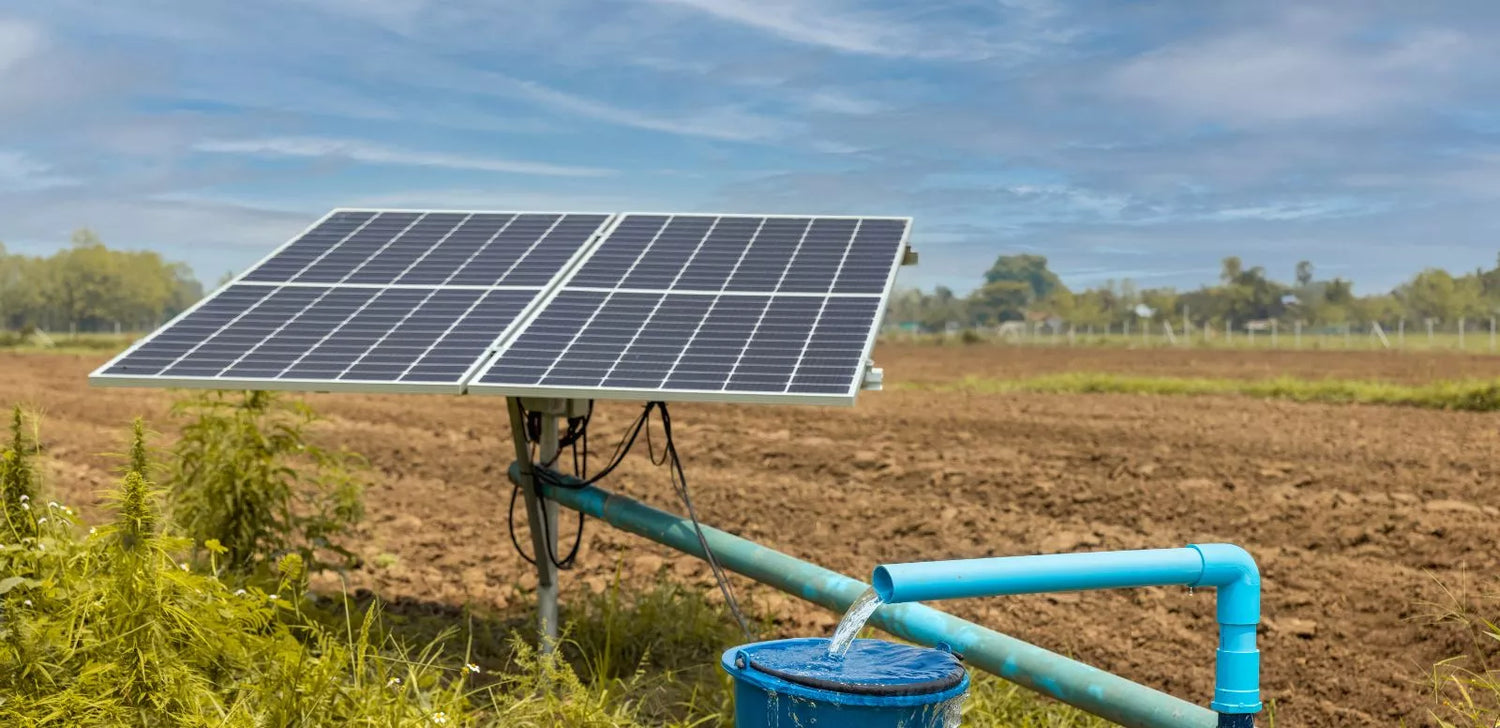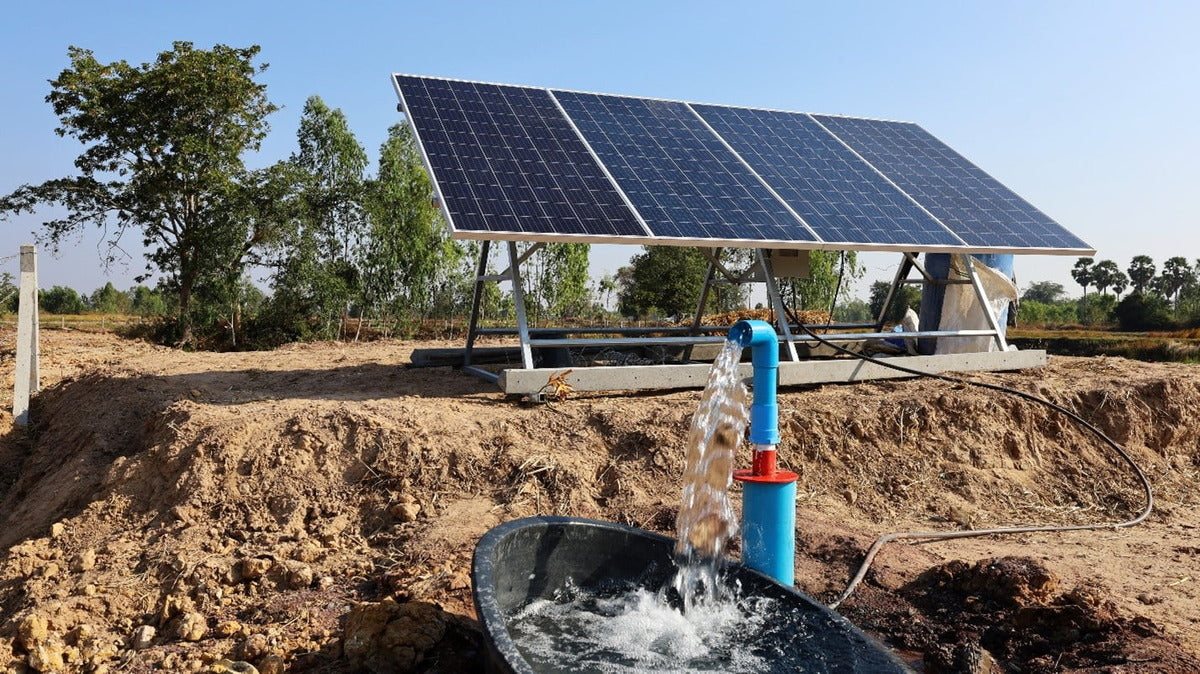Water scarcity is a pressing issue facing communities worldwide, driven by factors such as population growth, climate change, and unsustainable water management practices. In the face of this challenge, innovative solutions are imperative to ensure the sustainable use of this vital resource.
LORENTZ, a legendary name in solar-powered pumps, is answering this call with the LORENTZ-S, an innovative self-install pump. These pumps, which harness the sun's plentiful energy, offer a sustainable and environmentally-beneficial alternative to standard pumping systems. Their revolutionary design decreases reliance on fossil fuels while simultaneously lowering carbon emissions and environmental impact.
In this article, we will go deeper into the workings of LORENTZ-S pumps, looking at their primary advantages, implementation methodologies, and practical applications. We will demonstrate these pumps' revolutionary potential in alleviating water scarcity and fostering sustainable development.
Overview of LORENTZ-S Pumps
The LORENTZ-S is a significant advancement in water pumping technology. These pumps use solar energy to pull water from a variety of sources, including bores and dams. Unlike traditional pumps, LORENTZ-S pumps do not require grid electricity, making them perfect for distant or off-grid sites. Their efficient design offers a consistent and dependable water supply while reducing environmental effects.
Efficient Water Pumping Techniques
At the heart of LORENTZ-S pumps lies their efficiency. These pumps employ solar energy instead of fossil fuels, reducing greenhouse gas emissions. Their innovative technology optimises water consumption, guaranteeing that every drop counts. Whether for small irrigation, livestock drinking water, or home use, LORENTZ-S pumps provide precise and dependable water delivery while conserving this valuable resource.
Key Benefits of Using LORENTZ-S Pumps
The benefits of incorporating LORENTZ-S pumps into water management strategies are manifold.
- Renewable Energy: LORENTZ-S pumps use solar power as a sustainable and renewable energy source for water pumping.
- Cost Savings: By eliminating the requirement for grid electricity, LORENTZ-S pumps provide significant long-term cost reductions in operational expenses.
- Environmental Impact: LORENTZ-S pumps support eco-friendly water management methods by emitting zero carbon dioxide and leaving a small environmental footprint.
- Low Maintenance: With minimal moving parts and robust construction, LORENTZ-S pumps require little maintenance, reducing downtime and operational disruptions.
-
Sustainability: LORENTZ-S pumps help ecosystems and communities stay healthy and resilient by saving water resources and fostering sustainable behaviours.
Implementing Water Conservation Strategies
When it comes to applying water-saving strategies, LORENTZ-S pumps offer unparalleled flexibility. Its low maintenance requirements and long-lasting structure ensure trouble-free operation in even the harshest environments. LORENTZ-S pumps contribute to increased resilience and water security by enabling customers to better manage water supplies.
The Advantages of DIY Pump Installation
- The ability to install a pump oneself provides numerous benefits, both practical and sustainable.
- Self-installation allows people and communities to take responsibility for their water management needs, removing the need for expensive expert services and long wait periods.
- This accessibility promotes independence and self-sufficiency, especially in remote or underdeveloped locations where professional installation services may be scarce.
- Self-installation puts consumers in control of water pumping, from selecting the best position to modifying settings for maximum efficiency. This ensures a customised and individualised approach.
- This increased knowledge promotes a culture of conservation and stewardship, ensuring that water resources are used sustainably for future generations.
- Overall, the benefits of being able to install a pump yourself go far beyond convenience, resulting in a more sustainable and resilient water future.
Embracing a Water-Wise Future with LORENTZ-S Pumps
LORENTZ-S pumps are a beacon of hope in the struggle for water conservation. These pumps, which use solar power and cutting-edge technology, provide a long-term answer to one of humanity's most critical issues. With LORENTZ-S pumps, you can embrace the power of innovation and contribute to a more water-wise future. Take the Next Step Towards Water Conservation. Contact us to explore the Potential of LORENTZ-S Pumps Today!
FAQs:
How do LORENTZ-S pumps contribute to water conservation?
LORENTZ-S pumps use solar energy to efficiently pull water, minimising reliance on grid electricity and lowering environmental impact.
Are solar-powered pumps suitable for all regions?
Yes, solar-powered pumps are adaptable to various geographical locations, making them suitable for both remote and urban areas.
What maintenance is required for LORENTZ-S pumps?
LORENTZ-S pumps require less maintenance and include long-lasting components that ensure durability and performance.
Can LORENTZ-S pumps be integrated with existing water systems?
Absolutely. LORENTZ systems are compatible with the LORENTZ Pumpscanner and LORENTZ Assistant apps, available on Google Play. These apps allow you to monitor, control, and alter pump parameters, including timing, speed control, and pressure levels, from your mobile device.
How do LORENTZ-S pumps compare in terms of cost with traditional pumps?
While the initial investment is costlier, the long-term savings in operational expenses and environmental benefits make LORENTZ-S pumps a more cost-effective solution in the long run.
What are the environmental benefits of using LORENTZ-S pumps?
LORENTZ-S pumps cut carbon emissions, minimise water waste, and promote natural resource conservation, making them critical tools in battling climate change and maintaining ecosystems.







